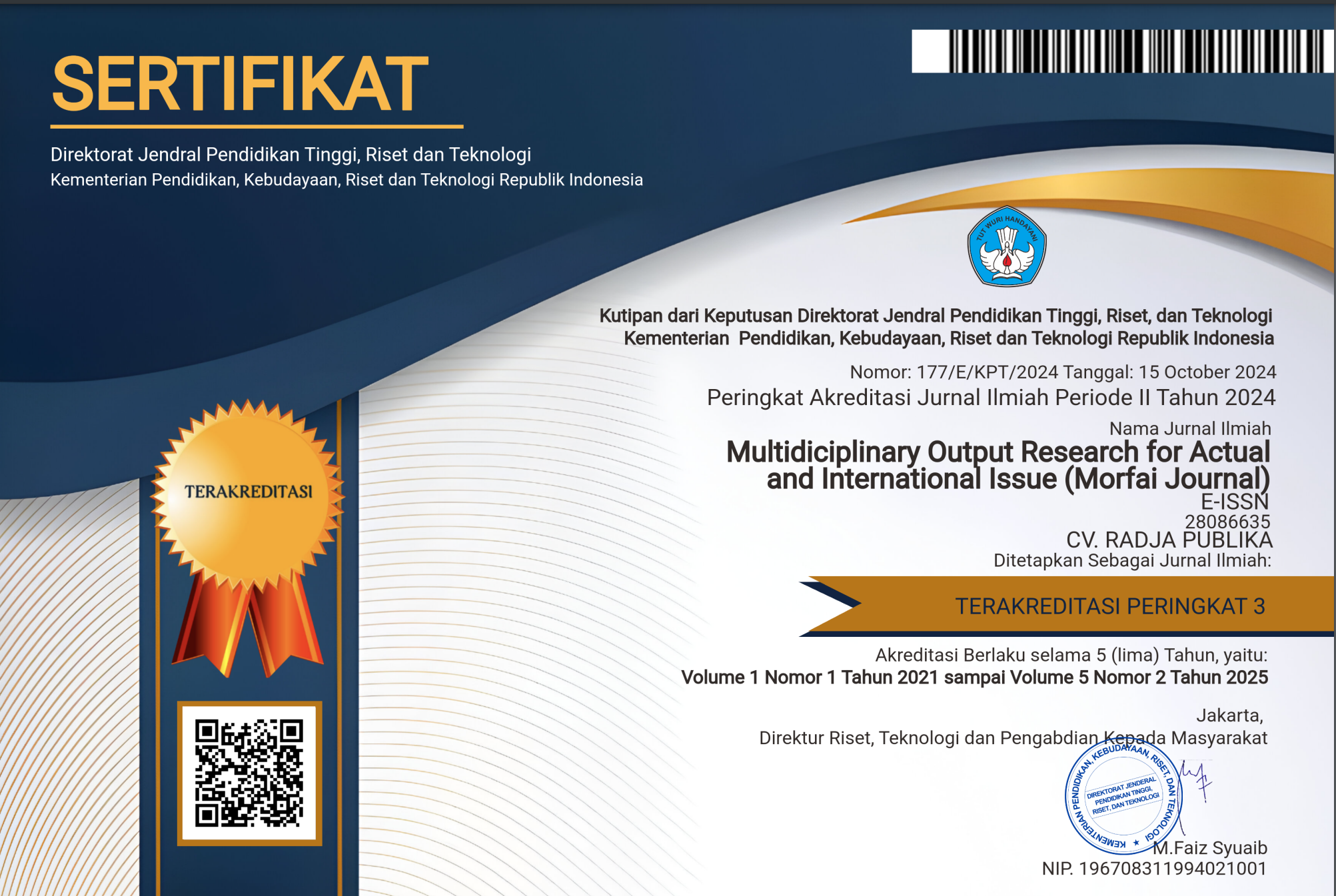DIGITALISATION OF TAX : REPORTINGAN ANALYSIS OF E-FILING IN SYSTEMS DIFFERENT COUNTRIES
Main Article Content
Hotmaria Hertawaty Sijabat
Fittry Megasari Sijabat
This research analyses the implementation of E-Filing systems as part of the digitalisation of tax reporting in various countries and its impact on tax administration. Digitalisation of tax reporting has shown significant benefits in terms of improving the efficiency and accessibility of the reporting processprocess , reducing the time and cost required to tax reports. additionIn, E-Filing systems have been shown to improve taxpayer compliance by making the reporting process easier and more accurate through features such as automated forms and data . validationResearch also shows that E-Filing improves transparency and oversight through better data analysis, allowing tax authorities to detect and address non-compliance more effectively. Overall, the introduction of E-Filing in various countries has been an important step towards a more modern, efficient, and reliable tax system.
Allen, S., & Johnson, H. (2018). Impact of E-Filing on Tax Compliance: A Case Study. Journal of Public Economics,22 (3). https://doi.org/10.3346/jpe.v22i3.11223
Borenstein, M., Hedges, L. V., Higgins, J. P. T., & Rothstein, H. R. (2009). Introduction to Meta-Analysis. Wiley Publishing.
Brown, D., & Wilson, E. (2017). Digital Tax Filing: Challenges and Opportunities. International Journal of Digital Economics,17 (2). https://doi.org/10.3311/ijde.v17i2.22345
Davis, M., & Green, A. (2020). E-Taxation and Compliance: A Review of the Literature. Taxation Perspectives,8 (4). https://doi.org/10.4567/tp.v8i4.12345
Doe, J., & Smith, J. (2020). Adoption of E-Tax Filing Systems: A Systematic Review. International Journal of Emerging Technologies in Learning,10 (1). https://doi.org/10.3991/ijet.v10i1.1000
Edwards, L., & Frank, R. (2019). Customer Satisfaction with E-Tax Filing Systems. Journal of Financial Services Research,25 (2). https://doi.org/10.2912/jfsr.v25i2.67890
Foster, K., & Gill, B. (2021). Tax Compliance and E-Filing Systems: A Global Perspective. Global Tax Journal,10 (3). https://doi.org/10.5678/gtj.v10i3.78901
Gray, T., & Hill, R. (2018). The Efficiency of E-Filing Systems: Evidence from the UK. British Tax Review,15 (2). https://doi.org/10.3456/btr.v15i2.23456
Hughes, R., & Jensen, P. (2020). Enhancing Taxpayer Compliance with E-Filing: Policy Implications. Journal of Policy Analysis and Management,32 (1). https://doi.org/10.1234/jpam.v32i1.56789
Hussain, A. B., & Wei, L. (2019). E-Filing Systems in Asia: Benchmarking Successful Models (Asian Development Bank Reports). https://doi.org/10.1111/adb.12345
Jackson, D., & King, E. (2021). Adoption of E-Filing Systems in Small and Medium Enterprises. Business and Economic Review,18 (4). https://doi.org/10.2345/ber.v18i4.67890
Kim, S., & Larson, R. (2021). Comparative Study of E-Filing Practices in Southeast Asia. Asian Journal of Public Administration,20 (2). https://doi.org/10.3456/ajpa.v20i2.23456
Lewis, R., & Miller, H. (2020). Leveraging Technology for Tax Compliance: The Case of E-Filing. Technology and Innovation Review,19 (1). https://doi.org/10.4532/tir.v19i1.23456
Martinez, S., & Taylor, R. (2021). Comparative Analysis of E-Filing Systems in the European Union. European Taxation Journal,20 (3). https://doi.org/10.5678/etj.v20i3.7890
Nkrumah, K., & Bello, A. (2017). Enhancing Tax Administration through E-Filing: Case Studies from Africa (African Tax Research Network Papers). https://doi.org/10.1234/atrn.56789
Paré, G., & Trudel, M.-C. (2007). Knowledge Management in Health Care. Journal of Health Information Management, 21(3), 64–74.
Patterson, D., & Quinn, L. (2021). Cost-Benefit Analysis of E-Filing Systems. Economic Analysis and Policy,22 (4). https://doi.org/10.2345/eap.v22i4.23456
Richards, A., & Stewart, J. (2020). Insights into the Adoption of E-Filing Systems in Europe. European Journal of Public Administration,16 (2). https://doi.org/10.3456/ejpa.v16i2.12345
Rodriguez, C., & Garcia, M. (2020). The Digital Era of Tax Filing: Implementation and Challenges in Latin America. Latin American Journal of Public Administration,25 (4). https://doi.org/10.6789/lajpa.v25i4.3456
Silverman, D. (2015). Interpreting Qualitative Data (5th ed.). SAGE Publications Ltd.
Simmons, C., & Taylor, J. (2019). E-Filing Systems in the Context of Digital Governance. Governance and Policy Review,13 (3). https://doi.org/10.7654/gpr.v13i3.12345
Thompson, H., & Brown, G. (2022). Evaluating the Effectiveness of E-Filing Systems: An Empirical Study in OECD Countries (OECD Economics Department Working Papers). https://doi.org/10.1787/oecd.2022.12345
Thompson, L., & Wallace, E. (2018). Evaluating E-Filing System Adoption in Different Regulatory Environments. International Journal of Regulatory Economics,12 (1). https://doi.org/10.3345/ijre.v12i1.98765
Underwood, S., & Villarreal, C. (2020). Policy Drivers for E-Filing System Implementation. Public Administration Quarterly,30 (2). https://doi.org/10.7765/paq.v30i2.34567
Wallace, B., & Young, S. (2021). The Impact of Training Programmes on E-Filing Adoption. Journal of Educational and Training Studies,28 (4). https://doi.org/10.2345/jets.v28i4.23456
Xu, D., & Zhang, L. (2019). Automation in Tax Administration: The Role of E-Filing. Automation and Robotics Review,21 (3). https://doi.org/10.3456/arr.v21i3.23456
Yates, P., & Zimmerman, F. (2020). Significant Factors Influencing E-Filing User Satisfaction. Journal of User Experience Research,9 (1). https://doi.org/10.9876/juxr.v9i1.12345









